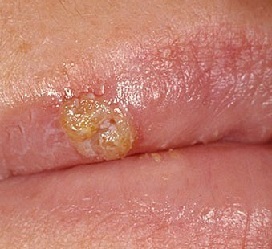Dizziness and impaired coordination of movements are quite rare in healthy people, but they, sometimes dizzy, when you suddenly get up off the bed or on the contrary - you lie down. Causes of vertigo when changing the position of the body are different, from mild disorders of the vestibular apparatus to serious problem states of health disorders.
What can I do to know exactly why you are dizzy? First, go to a therapist, a neurologist. Second, follow the medical advice received.
This article is a reference, can not serve as a substitute for traditional medical examination and treatment.
CONTENTS
Why dizzy when you get up and lie down:Causes of
There are several causes of dizziness. It most clearly manifests itself when you go to bed or get out of bed. By the origin of vertigo there are:
- Eye - appear when the image transmission from the retina of the eye to the brain is distorted. Adults when turning their heads and sharply shifting their eyes to other objects often notice dizziness, a "veil" before the eyes and nausea.
- Cerebellar - appear when electrical signals are disturbed in the cerebellum. This part of the brain is in the occipital region of the skull and is responsible for the coordination of movements. Because of damage to the structure of the cerebellum, a person can feel the vertigo with a sharp rise from the bed, daily movements, running, while doing physical exercises.
- Psychogenic - develop due to strong nervous experiences, stress, emotional stress and insomnia. As a result, a person complains about the sensation of the spinning of all objects around the body, the inability to concentrate, the turbidity in the head, the stunnedness.
- Ear - occur when the vestibular apparatus is damaged. Due to the disturbed perception of space, a person may get dizzy with a sharp rise from the floor or bed.
Often, damage to the structures of the brain and causes such an unpleasant symptom as dizziness.
About the causes of vertigo - Dr. Myasnikov
Video channel "The brain", a fragment of the TV show "On the most important thing."Dr. Myasnikov answers questions from viewers about the causes of the development of vestibular disorders.
What causes dizziness: diseases
There are a number of diseases that provoke the appearance of vertigo. Causes of dizziness when standing up or, when you want to lie down, serve:
- Vegeto-vascular dystonia occurs in people under 40 years old. For the ailment is characterized by constant fatigue, headaches, general weakness, drowsiness, hypotension. Often the head turns dizzy when you get up, and sometimes it gets dark in the eyes, which is associated with low blood pressure.
- Glaucoma , optic neuritis is accompanied by a distortion of perception of the external environment. The image on the retina enters the center of view in an unprocessed form. On this organism reacts with dizziness when turning the neck, long-term focusing on one subject. In adults, it starts spinning in the head and darkens in the eyes.
- The stroke of is caused by an inadequate supply of brain cells, as a consequence of central impairments. There is paralysis of the extremities, incomprehensible speech, forgetfulness, dizziness at rest.
- Concussion and head injuries occur after road accidents, falls, bumps. In this case, patients notice nausea, vomiting, pain and dizziness, when you start to climb and want to stand on your feet.
- Medium or internal otitis , Meniere's disease provokes damage to the vestibular apparatus. Thus patients complain of pains and noise in ears, deterioration of hearing. Dizziness appears immediately when a person wants to stand on his feet or lie down on his side and back.
- Cervical osteochondrosis .The disease causes ossification of the intervertebral joints, the growth of bone osteophytes, which damage the nerves and blood vessels during head movements. As a result, the blood supply to the arteries is broken, and the brain does not receive enough oxygen.
As soon as dizziness appears on the rise from the bed, you need to lie down quickly, so as not to faint!
Check, first, whether your blood pressure is normal! Very often, adults rise from the bed very sharply, and relaxed vessels do not have time to come into tone. Because of this, the brain does not receive the necessary amount of oxygen - there is dizziness.
Symptoms of dizziness
Dizziness can be caused by various diseases. Because of this, the person has comorbid symptoms that aggravate the condition:
- Nausea, vomiting, general weakness;
- darkening and pain in the eyes;
- inability to focus the view;
- nystagmus, pain and tinnitus, hearing impairment;
- ringing in the head, stuffy in the ears, frequent fainting;
- insomnia, gait disturbance, unsteadiness in movement;
- pain in the neck and arms, general malaise, pain and heart failure;
- drowsiness and persistent fatigue.
The causes of these symptoms are associated with damage to certain organs.
If the head drowsies for a long time, vomiting is very vexing and disturbing, periodic vomiting - this condition can indicate a brain tumor
What to do to prevent dizziness
What to do if the head becomes dizzy when getting out of bed:
- After waking up, you should always stretch for 30-60 seconds. This technique will help to activate the heart and tone the relaxed vessels.
- Before you get out of bed, you must turn over on your side and wait for 1-2 minutes.
- Slowly lower your legs to the floor and take a sitting position. The main thing is not to make sudden movements.
- After 30-40 seconds stand up.
Such recommendations should be followed by those who are dizzy when getting out of bed.
When lying down and dizzy, the following tricks should be taken:
- Sharply falling on the bed is prohibited because of possible damage to the spine. At first they sit down on the bed, then smoothly lie on their side, and then on their backs.
- If dizziness does appear, the tips of the four fingers of both hands perform circular movements around the eyes clockwise. The procedure lasts 1-2 minutes.
Dizziness may be worse. To eliminate discomfort, you need to use pills, but only after the appointment of a doctor.
How to eliminate dizziness and other symptoms: treatment of
After repeated attacks of dizziness, when a person rises or falls, a medical consultation of the therapist and neurologist is necessary. Specialists will discover the reasons why you get dizzy when you get up or lie down and get treatment:
- Dizziness in Meniere's disease: Vestiibo( Betaserk) - 1 tablet( 16 mg.) Three times a day for 1-2 months.
- The head is spinning under stress and insomnia: Relanium - half the tablet 3 times a day under weekly medical supervision.
- The head is spinning with labyrinthite: Cinnarizine - 25 mg 3-4 times a day for up to 1 week.
- Nausea, vomiting accompany dizziness: Sturgeon - 1 tablet( 8 mg) 2-3 times a day until 7 days. Zofran - injection of intramuscularly 2 ml.twice a day.
- Headache or ear pain: Imet tablets - 1 tablet 1-2 times a day, but no longer than 5 days.
Take dizziness tablets only after consultation with a doctor.
If you feel dizzy, when you lie down or get up, you need to think about and establish the cause. The duration of medication depends on the disease that caused dizziness, and the recommendations of the treating doctor.
Video that causes dizziness - a test for nausea and vomiting
Video channel "World of Attractions".Video from "Air Race"( Tayto Park, Ireland).
If you suffer from frequent dizziness( and there are concomitant symptoms - weakness and nausea), then immediately turn OFF this VIDEO!
If you are a healthy person, watch the video, test yourself for a visual provocation of dizziness.
Treatment of dizziness, how to treat the body - Dr. Evdokimenko
Dr. Evdokimenko. A video about why the head is spinning and how to be treated. The video is educational and fact-finding. There are contraindications. Before applying the recommendations and advice from the video and the publication must consult with your doctor!
Source: https: //simptomyinfo.ru/stati/golovokruzhenie/ 120-kruzhitsya-golova-kogda-lozhishsya-i-pri-vstavanii.html



